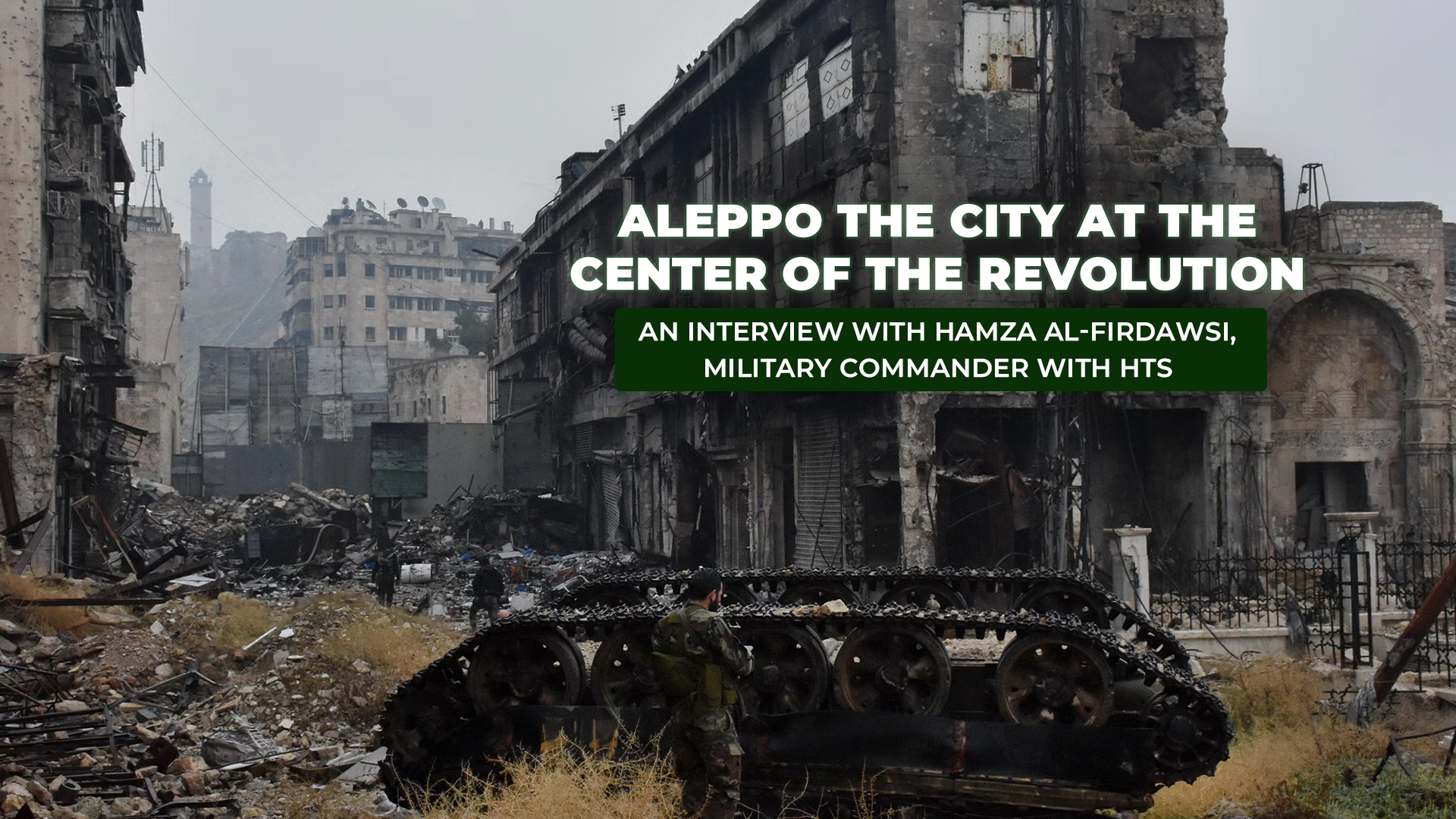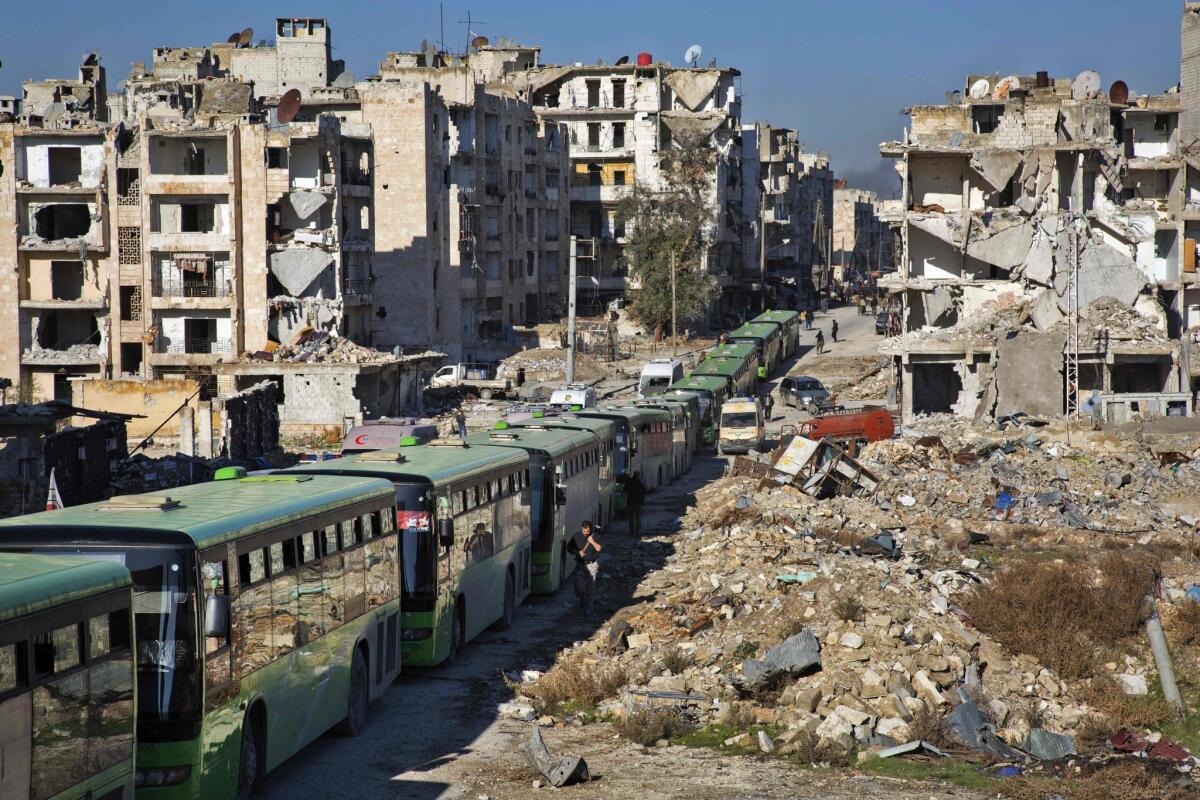An Interview with Hamza al-Firdawsi, Military Commander with HTS

Levant 24 spoke with Hamza al-Firdawsi about his experiences in the fight for Aleppo City. Al-Firdawsi, currently a commander in Haya Tahrir al-Sham (HTS), lived through the fierce battles and siege of the city and survived the brutal bombardment and airstrikes of the combined Russian and Assad forces in one of the deadliest and long-lasting urban battlefronts since the Second World War.
_______________________________
L24: Can you tell us about your experiences in Aleppo City and the place it holds in the historical and political tapestry of the revolution?
Hamza al-Firdawsi: “The city of Aleppo, was like the fulcrum on which the revolution pivoted – its importance cannot be overstated. When it rose in revolt and jihad against the criminal Assad regime, it greatly unbalanced the regime, sending reverberations of confusion and apprehension throughout its ranks across all of Syria. Fierce battles ensued between the mujahadeen and the enemy, resulting in the mujahadeen gaining control over many districts in Aleppo City and its countryside. However, some areas of the regime remained encircled, such as Aleppo Airport, munitions factories, and Aleppo Central Prison.

“The loss of Aleppo had a significant impact on the revolution, in general, and on the people and mujahadeen of Aleppo in particular. The areas that were besieged, including the south, began to fall one by one, and the mujahadeen from those areas shifted to Idlib. Similarly, after losing their city, many Aleppo residents left for Turkey, and some went to various European countries. Those who remained in the liberated north sought refuge in makeshift camps, enduring harsh displacement conditions.

“The fall of Aleppo also had a profound effect on some mujahadeen to the extent that they became disheartened and abandoned jihad. Some even went to Turkey, believing that the revolution had come to an end. To this day, the people of Aleppo continue to remember the bombardment, destruction, and unforgettable massacres that occurred in their city.
“External parties had a significant impact on the battles of Aleppo, leading to its fall into the hands of the enemy. For example, the Russian side heavily relied on a scorched-earth policy, intensifying airstrikes and targeting vital centers, hospitals, and medical points. This left no secure place for treating the wounded, and the medical staff struggled to cope with the large number of casualties among the civilians.
“The Russian occupier imposed a suffocating siege on the city and also implemented a policy of starvation, as Aleppo, an industrial center, lacked agricultural lands and thus self-sufficiency in terms of food. These factors led to the collapse of the morale of the fighters, and the enemy advanced from various fronts, forcing the mujahadeen to retreat to a few neighborhoods. The Russian occupier then proposed negotiations for the surrender of the city and the evacuation of its residents, which the rebels had no choice but to accept.









